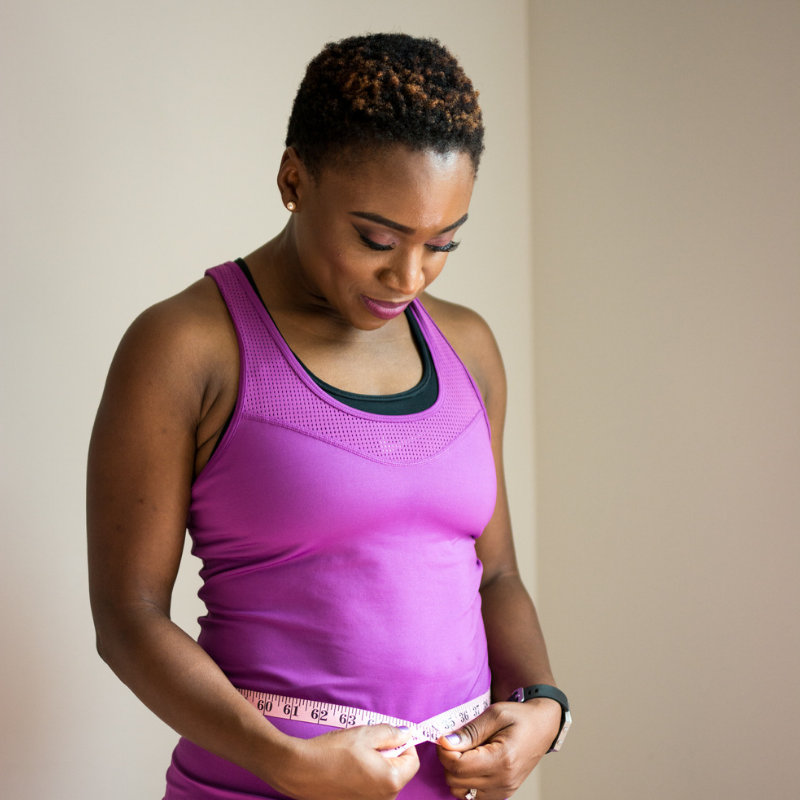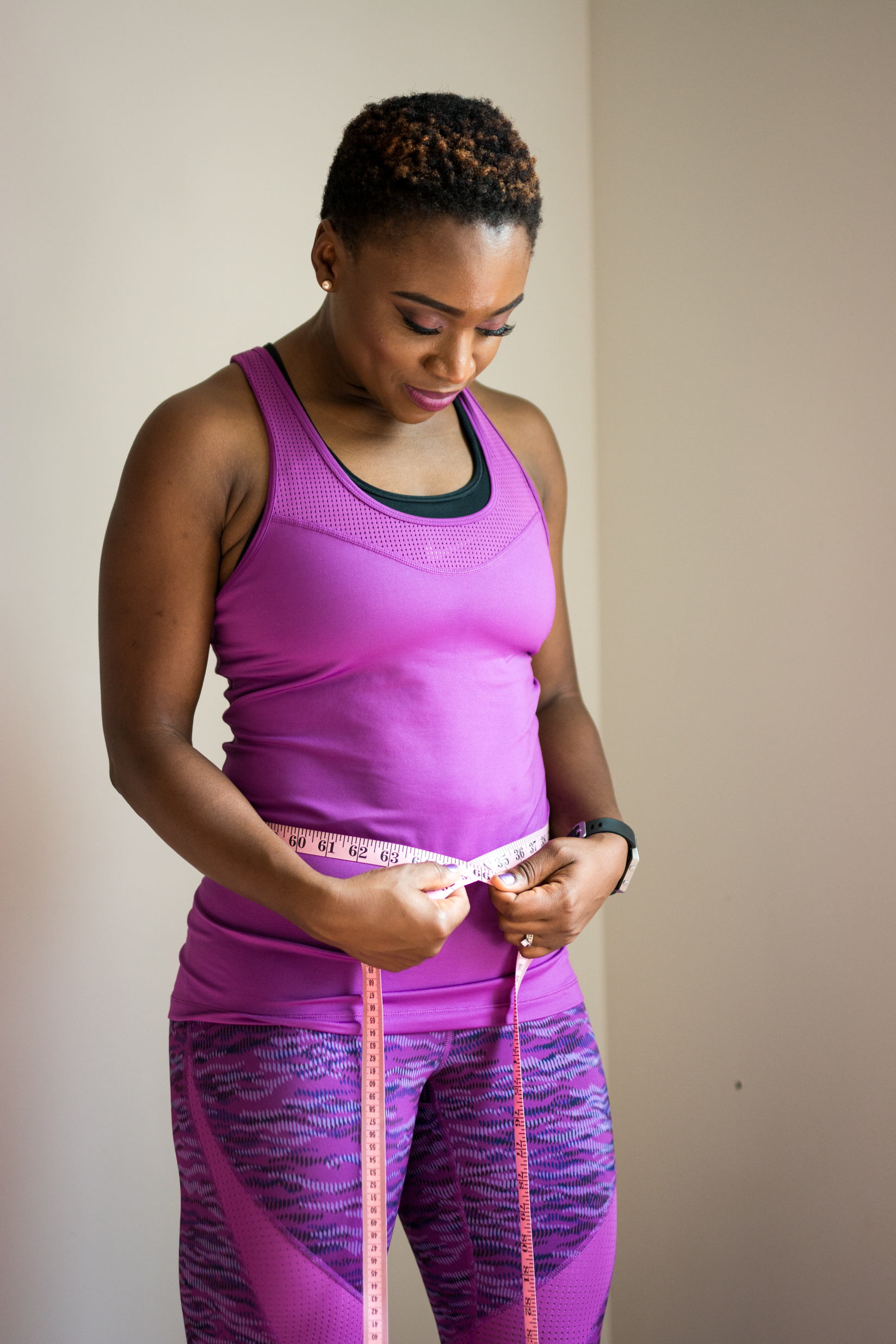

Belly fat which is often referred to that the “mummy pouch” is one of the biggest complains mothers have.
While some women are naturally blessed with flat bellies and seem to have no problem with the “snap back” after baring children, the vast majority of us actually have to do some work in order to achieve and/or maintain a flat belly.
Now before we go any further let me address the fact that growing and birthing a child is no walk in park and it does change our bodies.
Looking back at old photos of yourself before you had kids and wishing for that same body again could be a sure way to set yourself up for disappointment.
I am in the best shape of my life- in my thirties, after 2 children -but my skin is not quite what it used to be – I have stretch marks and lose skin – and it’s OK!
As mums it’s important for us to be REALISTIC with our goals. Expecting to have chiseled abs like those we see on social media and in magazines is not a bad thing, but it may not be realistic.
On the other hand, constantly obsessing over belly fat will not make it go away either. Many have turned to drinking flat tummy teas”, wearing waist trainers and even starvation as a means of losing belly fat – but still don’t see results.
The truth of the matter is that the best way to deal with the unwanted “mummy pouch” is cultivate habits that are HEALTHY, PRACTICAL AND SUSTAINABLE for our busy lives as, mothers, wives, employers, business owners etc.
Whether you have just recently had a baby, or you have been struggling with the ‘mummy pouch” for several years, here are some practical tips that can help you achieve a flatter belly;
Clean up Your Diet – It’s true what they say, “Abs are made in the kitchen” – so this is be best place to start! Eating poorly results in weight gain, bloating, and excess water retention – all of which contribute to an increased waistline.
Practical ways to clean up your diet include;
Trading processed carbs like white rice and white bread for their whole-wheat versions.
Eating plenty of lean protein – such as skinless chicken or turkey, fish, eggs, beans & lentils, nuts and seeds.
Consuming healthy fats like avocados, nuts and fish.
Avoiding high sugar foods
Watching salt intake
Reduce Your Portions – The reality is that most of us eat much more food than we need and it slows down or impedes progress. Even if what you are eating is healthy you still need to manage your portions because too much “healthy” food is still too much food and will not help you towards achieving your goals.
Some practical ways to do this are;
- Use a smaller plate – this will help train you to eat less
- Use this as a general guide for what your plate should look like ¼ Carbs, ¼ protein, ½ vegetables.
- Don’t go back for seconds! Drink some water first and wait a little while, you’ll likely find that you aren’t actually hungry – probably just bored!
- Do Cardio– Cardio burns calories; calories burning equal fat burning, so doing cardio is essential to ensuring that the extra pounds and inches are falling off. Try to incorporate ~ 30 minutes of cardio a day into your routine.
Good cardio options include;
- Brisk walking/jogging/running
- Cycling or swimming
- Skipping of climbing the stairs
- HIIT (High intensity interval training)
- Strength Train– You need to build muscle to increase your fat burning ability. So strength training is very important. You don’t have to lift heavy weights or even enter a gym in order to get the benefits of strength training, but you do need to add sufficient resistance to achieve desirable results.
Some easy ways to add resistance are;
- Holding weights while you do exercises like squats and lunges
- Using resistance bands
- Increasing the amount of time you hold a certain exercise for
- Increasing the number of repetitions you do of a certain exercise
- Manage Stress– This one is not so simple, but could be the most important factor affecting your health. The truth is that as mums we have to deal with varying levels of stress daily.
- Stress causes an increase in stress hormone “cortisol “ in the body which causes fat to store in areas that are more susceptible – like the belly. Another side effect of not managing your stress is that you could get overwhelmed or fall into depression and these could cause you to either overeat or stop eating all together – both of which are not good for your health.
Some practical ways to manage stress include;
- Daily Prayer & medication
- Regular (scheduled) de-stress and self-care time
- Exercising
- Journaling
and most importantly…
- ASKING FOR HELP
Mosope Idowu is the founder of bethelfitmum, which caters to busy mums with young children who have limited time and feel overwhelmed by the demands of life, but desire to improve their health and fitness. She is a certified personal trainer with specialisation in post-partum weight loss and healthy nutrition.
She can be contacted via email at info@bethelfitmum.com , here and on her website




I really love the tips and wont mind trying them out one of these days